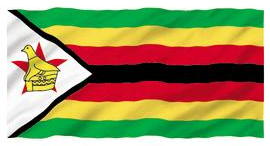Zimbabwe's public health services crying out for reconstruction
Impoverished patients were unable to afford alternative treatment or travel to neighboring countries, said the Herald newspaper, a government mouthpiece.

Patients treated at the two main state hospitals in Harare and the second city of Bulawayo faced cancer relapses, the paper said.
It said health authorities, bankrupt in the worst economic crisis since independence in 1980, sought sponsorship from the International Atomic Energy Agency to repair the equipment and train local maintenance staff.
Thursday's report was the latest in a list of woes facing public services already reeling from acute shortages of drugs, equipment and materials as well as medical professionals and struggling to cope with the high HIV/AIDS rate, the AP reports.
Earlier this month, the government announced increases in state hospital charges of up to 30-fold in an effort to shore up crumbling services.
Official inflation is running at 913 percent, the highest in the world.
In January, consultant physicians wrote a damning report to health authorities on conditions at the state Harare Central Hospital serving poor townships in capital.
That hospital had run without an intensive care unit and high dependence unit for three years, the blood bank often had no blood "and several people have died as a result," the report said.
Most X-ray equipment was either broken down or obsolete. Antiquated elevators constantly broke down, and one in the maternity wing had not worked for several years.
"Very ill babies have to be carried in the arms up the stairs," the report said.
Elsewhere in the hospital, "there is often no soap or any other antiseptic liquid to clean hands in wards. There is usually nothing to dry hands with," the physicians said.
Police in Zimbabwe, meanwhile, were reported earlier this month to have run out of breath test analyzers for drink-related offenses and resorted to asking motorists and other suspects to stand on one leg or walk in a straight line.
Zimbabwe's economy has been in freefall since the often violent seizures of more than 5,000 white-owned commercial farms began in 2000, disrupting agricultural production. The United Nations estimates at least 3 million of the 12.5 million population are in need of emergency food aid ahead of next month's harvests.
Subscribe to Pravda.Ru Telegram channel, Facebook, RSS!


